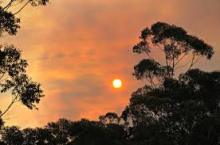 As some of you know, I was inspired to start working in the healing of intergenerational trauma field after reading Judy Atkinson’s book Trauma Trails: Recreating Song Lines – The Transgenerational Effects of Trauma in Indigenous Australia. A section of this website is devoted to the healing of trauma and intergenerational (sometimes known as transgenerational or historical) trauma. I believe strongly that Indigenous peoples have a lot to teach non-indigenous peoples about the healing of trauma and its consequences (e.g. addiction, mental health problems).
As some of you know, I was inspired to start working in the healing of intergenerational trauma field after reading Judy Atkinson’s book Trauma Trails: Recreating Song Lines – The Transgenerational Effects of Trauma in Indigenous Australia. A section of this website is devoted to the healing of trauma and intergenerational (sometimes known as transgenerational or historical) trauma. I believe strongly that Indigenous peoples have a lot to teach non-indigenous peoples about the healing of trauma and its consequences (e.g. addiction, mental health problems).
Emeritus Professor Judy Atkinson is Patron / Elder Advisor of the wonderful Aboriginal healing initiative We Al-li Programs. Her daughter Dr Caroline Atkinson is the Chief Executive Officer.
We Al-li have recently started selling a box set of Healing Cards based on their healing approach. These Healing Cards and their accompanying booklet are very special. Here is the information that Carlie provided me about the box set.


 It’s hard to believe that it is over seven years ago since I launched
It’s hard to believe that it is over seven years ago since I launched 








